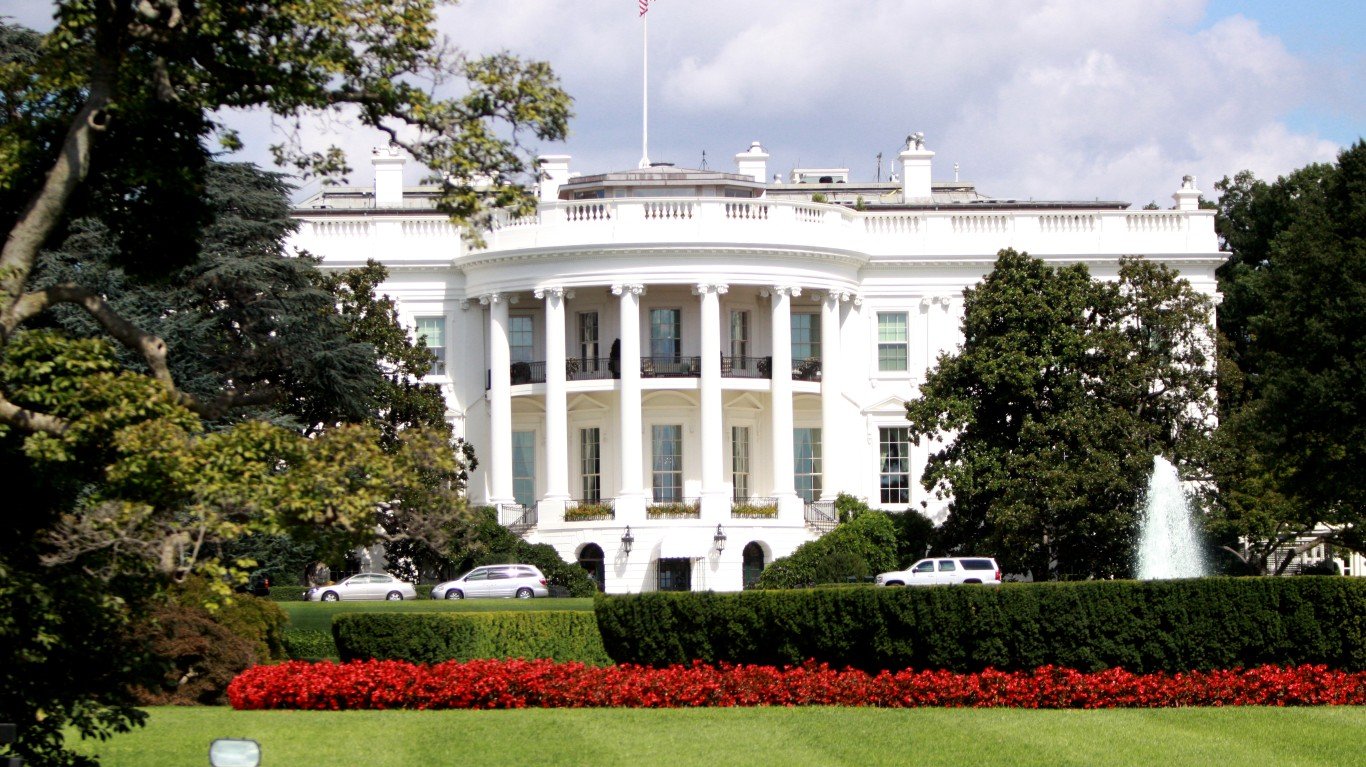

A recent Wall Street Journal poll has found that three in five American voters do not approve of President Joe Biden’s economic policies, commonly referred to as “Bidenomics.” This comes despite inflation easing from 40-year highs and unemployment remaining low.
Almost 60% of Voters Disapprove of Biden’s Economic Policies
Despite the relatively more positive outlook, most voters still disapprove of President Biden’s handling of the economy. Approximately three out of five voters polled by the Wall Street Journal expressed dissatisfaction with Biden’s management of the economy, and 63% of voters are unhappy with how he has dealt with inflation.
Inflation, which reached a 40-year high of 9.1% in June 2022, has significantly slowed down. According to the Labor Department, prices were up 3.2% in July compared to the previous year. Likewise, the labor market has remained strong, with employers adding an average of 236,000 jobs every month this year.
Although around 55% of Democratic voters believe that the economy has improved under President Biden, the overall sentiment remains negative. Michael Bocian, a Democratic pollster involved in the survey, noted that voters still feel pessimistic about the economy’s strength and its overall direction.
Most Voters Don’t Credit Biden For Improvements in Economy
The lack of credit given to President Biden’s economic policies can be attributed to several factors. For one, some voters blame Biden’s pandemic spending programs for last year’s surge in consumer prices.
Additionally, the administration’s focus on manufacturing as a cornerstone of its economic agenda might not resonate with most Americans. Manufacturing continues to play a minor role in the US economy, with only around 8% of the workforce employed in the sector.
Furthermore, the manufacturing sector contributes only a fraction of the total gross domestic product (GDP). This is primarily due to the industry’s shift towards automation, resulting in a reduced need for a large workforce to achieve the same production level. In terms of inflation-adjusted value, the United States currently manufactures nearly as much as it has in the past, but with fewer workers and a greater reliance on robots.
Consequently, most American workers are employed in the services industry. This holds regardless of gender, educational background, or location, including states like Michigan.
It is worth noting that the demographics of manufacturing workers have also evolved significantly over time. Today, a higher level of education is increasingly common among these workers, according to a report from the Federation of American Scientists (FAS), an American nonprofit global policy think.
Most manufacturing employees have pursued postsecondary education, with a significant portion holding bachelor’s degrees or higher. Even if new manufacturing facilities, such as chip or battery plants, were to be established promptly, they would not substantially employ the non-college-educated White voters that Democrats seek to attract.
Voters Remain Skeptic of Bidenomics
Despite the administration’s efforts to promote “Bidenomics” and highlight its positive economic impact, many voters remain unconvinced. Critics argue that the cost of living remains unreasonable, and the economic speeches made by President Biden are seen as mere lip service.
“They can go out and talk about this stuff all they want, these voters aren’t hearing it, or they’re not believing it,” Tony Fabrizio, a Republican who also polls for a super PAC supporting Trump’s candidacy, said. “They are certainly not buying it.”
Meanwhile, the WSJ poll also found a split regarding the significance of the economy in influencing voters. For Republicans, the economy emerged as the most crucial issue, with 36% of respondents highlighting it and 10% expressing concern about inflation.
On the other hand, among Democrats, only 12% regarded the economy as the top issue, while a mere 3% identified inflation as significant. Instead, abortion took the lead as the primary concern for Democrats, as 15% of respondents mentioned it.
Nevertheless, leading US stock market indexes, including the Dow Jones Industrial Average, the Standard & Poor’s 500, and the Nasdaq Composite, are up this year, each gaining 4.3%, 16.5%, and 32.5% YTD, respectively.
This article originally appeared on The Tokenist
Smart Investors Are Quietly Loading Up on These “Dividend Legends” (Sponsored)
If you want your portfolio to pay you cash like clockwork, it’s time to stop blindly following conventional wisdom like relying on Dividend Aristocrats. There’s a better option, and we want to show you. We’re offering a brand-new report on 2 stocks we believe offer the rare combination of a high dividend yield and significant stock appreciation upside. If you’re tired of feeling one step behind in this market, this free report is a must-read for you.
Click here to download your FREE copy of “2 Dividend Legends to Hold Forever” and start improving your portfolio today.
Thank you for reading! Have some feedback for us?
Contact the 24/7 Wall St. editorial team.



